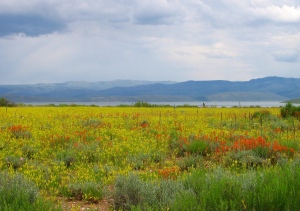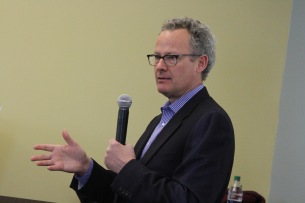In January of this year the Coastal Resources Center (CRC) adopted the Sea Level Affecting Marshes Model (SLAMM), which maps the predicted effects of sea level rise in all 21 Rhode Island coastal communities. Over the past 200 years, Rhode Island has lost 50 percent of its salt marshes due to man made alterations. Today, the remaining 4,000 acres are threatened by sea level rise.
Salt marshes provide the Ocean State with commercial and recreational fishing as well as shoreline protection. The SLAMM maps illustrate how the salt marshes will be affected by one foot, three feet, and five feet of sea level rise in the decades to come.
Rhode Island residents can view the public maps to find out how their neighborhood could be affected by climate change and sea level rise. The maps aim to create a plan of action in terms of restoration and also aim to predict where wetlands may develop in the future as sea levels continue to rise.




